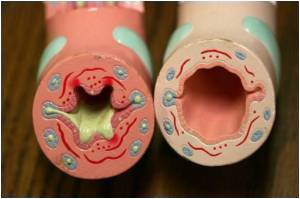An immune system protein that has been used to treat several diseases could also help asthma sufferers, claim researchers.

"This finding is incredibly important, because humans are being treated with interferon for a variety of diseases, yet no one has tried treating asthma patients with interferon," said Dr. J. David Farrar UT Southwestern Medical Centre.
"The current therapies for asthma are inhalers and steroids, both of which offer only temporary relief," he added.
The researchers showed in isolated human cells that interferon blocks the development of nascent Th2 cells and inhibits cells that already have become Th2 cells by interfering with a regulatory protein called GATA3, a transcription factor Th2 cells express to regulate their function.
"Interferon is blocking the development of these cells and their stability, and it's doing this by targeting the very transcription factor that regulates their development and stability in the first place," said Farrar.
"By targeting this transcription factor, we've turned off the key component that regulates the entire process."
Advertisement
"The study has confirmed that it's the Th2 cells that you really want to target," he said.
Advertisement
The findings were published in the Journal of Immunology.
Source-ANI











